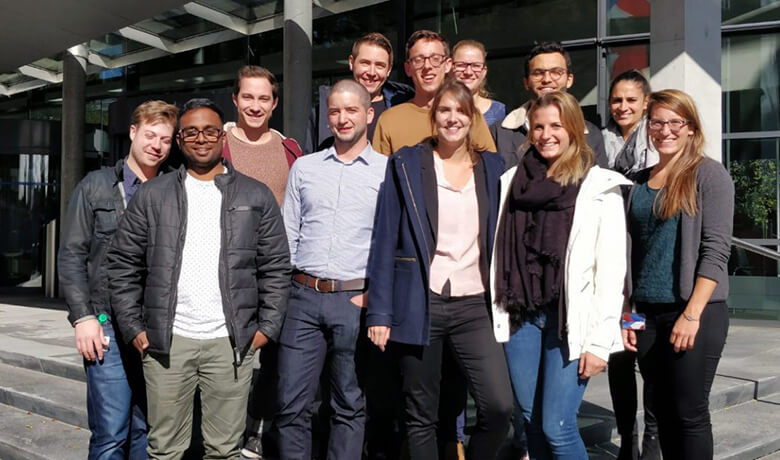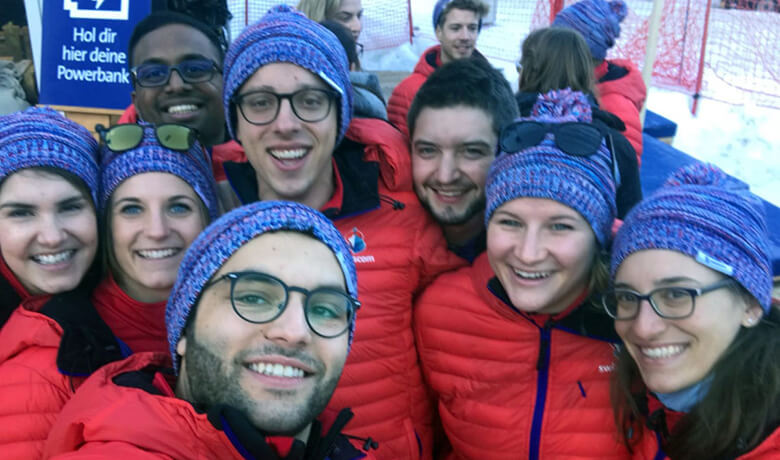In addition to the appeal of an exciting and challenging working environment, the trainee programme has a high social added value. Despite the fact that twelve such different people, who had previously only met briefly at most during the assessment, come together, a sense of belonging (or "need to belong", as the social psychologist would call it) develops very quickly. You are happy for the others (and of course also a little for yourself) and immediately see yourself as part of a group that can achieve a lot. What sounds like a matter of course at first glance is quite astonishing - the trainees come from a wide variety of backgrounds in terms of their studies and geography. From educational science graduates (who can do more than paint mandalas, by the way - to stay true to the clichés) to the classic "HSG student" and the "techie", the fields of study couldn't be more different. As different as the "knowledge rucksack" is packed, the (developed) similarities are astonishing. Our trainee year, for example, suddenly developed a fondness for ginger. Ginger, a spice that most people had perhaps only ever come into contact with due to the flu - and yet a dynamic developed that led to a veritable ginger hype breaking out among the trainees: from ginger tea to ginger chewing gum to ginger beauty masks - the main thing is ginger. And no, even if I had studied psychology with a clinical background, I would never think of imposing therapy on us for this reason (the whole thing can certainly be explained by "groupthink").




